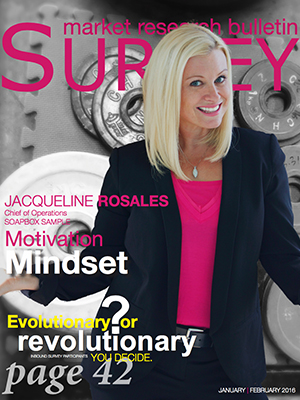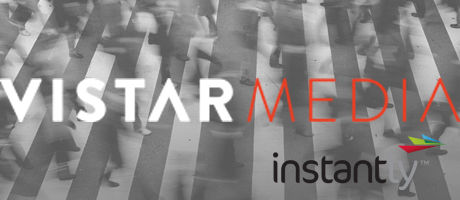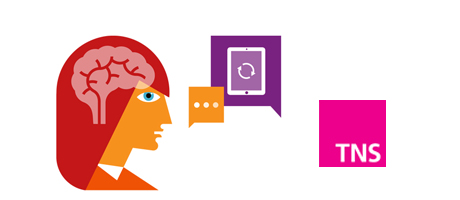CONSUMERS ARE MORE MOTIVATED BY LOYALTY PROGRAMS THAN EVER BEFORE
Marketers must evolve and differentiate programs to sustain consumer engagement in a highly competitive loyalty landscape
NEW YORK, March 31, 2015 – Enrollment levels in consumer loyalty programs have reached an all-time high as consumers continue to consider them valuable and credit them with influencing shopping behavior. According to a survey conducted by Bond Brand Loyalty, one-third of consumers agree they would not be loyal to the brand if it were not for a loyalty program, and 70 percent of consumers modify when and where they shop to maximize points, up 13 percent over the past two years. In addition, loyalty programs were found to be a top contributor to brand loyalty, ranking higher than factors such as product and service availability, overall price, and communications from the brand.
The survey engaged more than 10,000 consumers to uncover insights on brands and loyalty initiatives used in industries such as retail, consumer packaged goods, financial services, entertainment, and dining. Key findings are included in the newly released 2015 Loyalty Report, available for download at www.bondbrandloyalty.com.
While the number of programs in which members are enrolled continues to grow, from about 10 programs per person in 2014 to more than 13 per person in 2015, the number of programs in which members are active is not experiencing the same level of growth. “While points and discounts drive behaviors, companies need to engage with consumers at a deeper level if they want to extend program loyalty into genuine brand loyalty,” said Scott Robinson, senior director of Loyalty Consulting & Solutions for Bond Brand Loyalty. “This necessitates thinking beyond a program’s monetary incentives to focus on how it can better serve customers or make their experience with the brand more enjoyable, including fulfilling customer needs”.
According to consumers, the three top functional-based satisfaction drivers in loyalty and rewards programs are the appeal of the rewards, the ease with which rewards can be redeemed, and the amount accumulated per dollar spent. However, experience-based drivers are equally as weighty in terms of their influence on overall program satisfaction. The three top experience-based drivers are effort to participate, the program meeting needs, and enjoyment of program experience.
“Brands with established loyalty programs now must make the shift to the future of loyalty and an experience-based model that is consistent with the overall brand,” said Bob Macdonald, president and CEO of Bond Brand Loyalty. “It’s more important than ever that companies focus on their best customers, and their data, to design a more personalized and authentic experience, which can help build stronger, more meaningful bonds with customers.”
When it comes to mobile, strategic and creative approaches to engage consumers are equally essential. Almost 50 percent of consumers want to engage with programs via mobile, yet the study reveals the presence of what may appropriately be termed “mobile loyalty app-athy.” While 12 percent of consumers have downloaded a program app (up 5 percent over last year), still 61 percent of smartphone owners are not aware whether the loyalty programs in which they are enrolled offer a mobile app.
Only 30 percent of consumers surveyed strongly agree that loyalty program experiences are consistent with their brand or company experiences, and nearly one-fifth strongly agree that it would be easy to replace a program with one from the competition, further illustrating the need for brands to build more unique experiences.
Top-Performing Loyalty Programs
This year’s study profiles over 100 loyalty programs. The overall top-rated loyalty programs as determined by customers who said they were very satisfied with the programs were Amazon Prime (71 percent) and Kroger Fuel (70 percent). Industry leaders included Food Lion’s MVP Card (59 percent) and Cabela’s Club Rewards (55 percent) in retail; L’Oreal Paris Gold Rewards (60 percent) and General Mills Box Tops for Education (51 percent) in consumer packaged goods; Subway’s Subway Rewards (54 percent) and TGI Fridays Give Me More Stripes (62 percent) in quick-service restaurants and casual dining respectively.
Programs that experienced the biggest increases in year-over-year satisfaction, as defined by customers who were very satisfied with the programs, were Subway’s Subway Rewards (31 percent increase), Barnes & Noble Member (31 percent increase) and The Children’s Place’s myPLACE Rewards (30 percent increase).
Programs that experienced the biggest decreases in year-over-year satisfaction were Best Buy’s My Best Buy (27 percent decrease), Outback Steakhouse My Outback Rewards (19 percent decrease) and Dove’s, Dove Insider (13 percent decrease).













